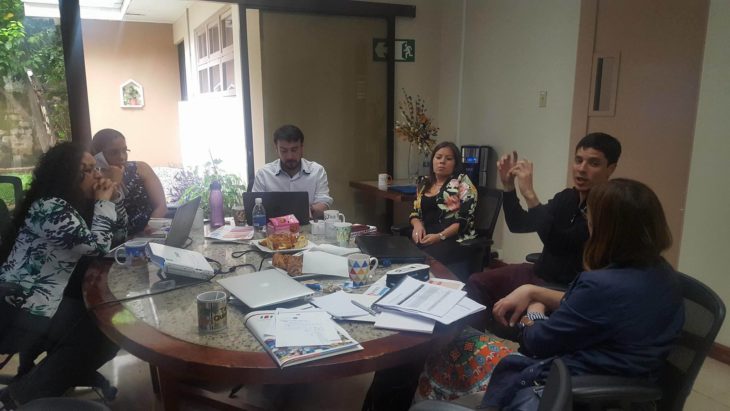The programme "Puente al Desarrollo" has contributed to reduce the poverty and extreme poverty of the country according to the last report of the National Institute of Statistics

Within the framework of EUROsociAL’s support to the Bridge to Development Strategy for Fighting Poverty, two officials from Chile’s Solidarity and Social Development Fund (FOSIS) participated in a mission in San José, Costa Rica, to provide technical assistance to the Presidential Social Council (CPS) and the Joint Social Aid Institute (IMAS), the institutions responsible for the strategy.
Bridge to Development Programme (Puente al Desarrollo) has achieved to reduce the poverty and extreme poverty of the country according to the last report of the National Institute of Statistics, but also is currently passing through a very delicate phase, given that its coverage is being expanded to an additional 27,000 families, on the one hand, and the sustainability phase is being defined for the core group of families that have not managed to reach 90% of the achievements defined in the family plans (with respect to social protection, health, education and training, work, habitability of the
home and family dynamics), on the other. The sustainability phase envisaged monitoring this selected population for an additional 12 months in order to also guarantee consolidation of the progress achieved and resolution of the pending issues. One of the changes recorded with the support of EUROsociAL (thanks also the connection with another action of the “Strengthening the Public Employment Service” programme) is the decision of Bridge to Development to assume as an essential component the improvement of the families’ participation in the labour market. And not just in the sustainability phase, also with the families that are being incorporated into the programme for the first time. For this purpose, the Ministry of Labour and Social Security (MTSS) and other institutions have developed the Social-Labour Strategy, which will allow the beneficiaries preferential access to the programmes for integration into the labour market.
The technical exchange between the FOSIS experts and the members of the Bridge to Development team were helpful, facilitating learning about the Chilean experience of the Social Protection System, which since 2002 has been growing and evolving into the current Families Programme. The inputs from the technical assistance provided by the FOSIS will enrich and orient the methodological guide of Bridge to Development, which regulates implementation of the sustainability phase (currently in the process of being validated in the field through meetings with families and co-managers), and the general and institution-specific action plans which define the targets and the work methods for that phase.
The Chilean model has many elements that have inspired the Bridge team, leading to reflection on: the psycho-social approach by the co-managers (professionals who support the families); standardisation and rigorous methodological definition of the family support sessions; decentralisation of assistance through agreements with municipalities; job shadowing. All of these are complementary elements oriented towards determining in the families processes of empowerment aimed at achieving full autonomy.
Área de políticas sociales de EUROsociAL+ / Social Policies Area of EUROsociAL+. IILLA



